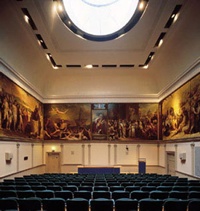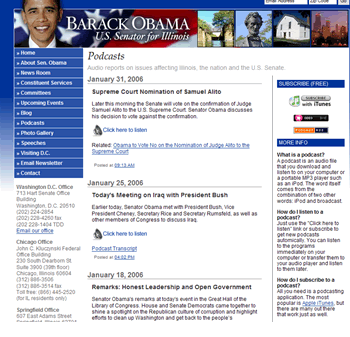RSA Event - The Social Impact of the Web - final programme
Posted on Thu, May 24, 2007 at 2:51 PM by Andrew ChadwickHere's the final programme for tomorrow's RSA Event. Hope to see you there.
The Social Impact of the Web:
Society, Government and the Internet
25 May 2007
Conference Programme
13.00 Registration
13.30 Welcome and Introduction by Matthew Taylor
13.35 Politics and the Web
Georgina Henry, Editor, Comment is Free & Editor, The Guardian
Andrew Chadwick, Head, Department of Politics and International Relations and Director, New Political Communication Unit, Royal Holloway, University of London
Tom Steinberg, Founder and Director, mySociety and former policy analyst
Matthew Taylor, Chief Executive, RSA – Chair
14.05 Q & A
14.30 Coffee break
14.50 Web 2.0 and Social Innovation
MT Rainey, Founder, Horse’s Mouth Foundation
Bronwyn Kunhardt, Former Director of Citizenship, Microsoft
Nico Macdonald, Founder, Spy
Tommy Hutchinson, Founder, I - genius - Chair
15.20 Q & A
15.50 Does the web need a constitution?
Professor Cass Sunstein, Karl N. Llewellyn Dist. Service Prof. of Jurisprudence, Law School, Dept. of Political Science and the College, University of Chicago
Will Davies, Goldsmiths, University of London - Chair
16.30 Q & A
17.00 Close



